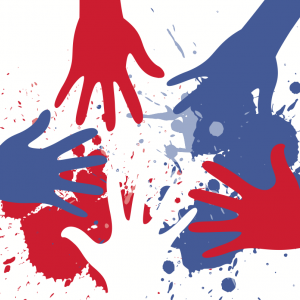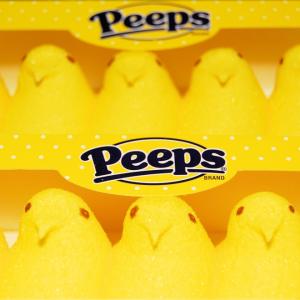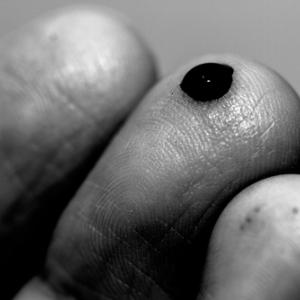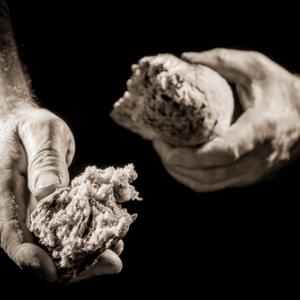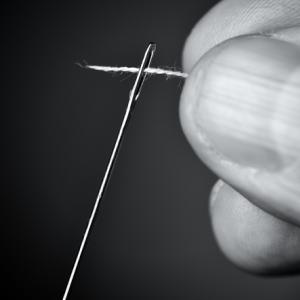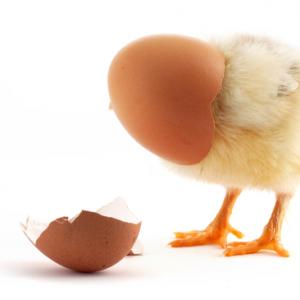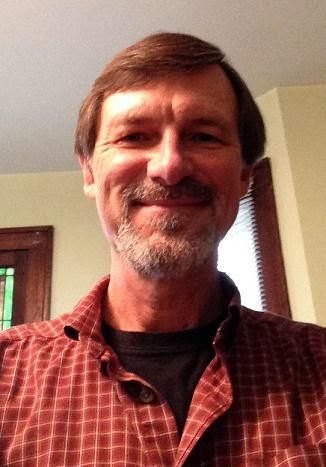
Joe Kay is the associate minister at Nexus United Church of Christ, Butler County, Ohio. He also writes a weekly blog at https://joekay617.wordpress.com. His email address is listed on the blog, in case you care to contact him directly.
Posts By This Author
You’re Wearing a Cape. Really.
Do you have a favorite superhero? I’ve always liked Batman. As a boy, I read all the Batman comic books. I like the cape and the cowl, the bat logo, the cool car with the flames coming out the back, the interesting villains.
What I like especially is that Batman is a regular person. Other superheroes fly or run at supersonic speeds or stretch their body parts in ways that are very strange and make you wonder. Batman has none of those powers. He’s like us — well, regular except for the part about being ultra-rich and living in a mansion above a bat cave …
The bottom line is that Batman fights for a better world using the things available to all of us: Creativity. Commitment. Courage. A passion to make a difference someone else’s life.
He reminds me of the super hero in each of us.
Choosing Freedom
Listening to several Fourth of July discussions last week, I was struck by how many people think of freedom as the ability to do whatever they want. They think there should be few, if any, restrictions on what they choose to do or what they want to own.
Into the Playhouse
My sister has one of those plastic playhouses in her backyard for her two boys. When she hosted a garage sale a few years ago, children accompanying their shopping parents would see the playhouse and join in.
I remember looking over at one point and seeing five children playing together. Different ages, different sexes, different races. All strangers. All playing together.
When they looked at each other, they saw a playmate.
In his autobiography, Nelson Mandela noted that children have an innate openness that tends to get closed off as they spend more time in the world.
“No one is born hating another person because of the colour of his skin, or his background, or his religion,” Mandela wrote in his autobiography. “People must learn to hate, and if they can learn to hate, they can be taught to love, for love comes more naturally to the human heart than its opposite.”
Love. Period.
I came across a pottery booth at an arts fair a couple weekends ago. One of the engravings on the wall reminded us that “Everyday a new story begins.“
Isn’t that true?
Our lives are a story written day by day, paragraph by paragraph, chapter by chapter, choice by choice. Each day is a blank page awaiting our entry.
A new plot twist. A new character. A few lines about grief. A paragraph about hope. An illustration of love.
How will we fill the page?
We get to decide our story, though not entirely by ourselves. Each of us has a co-author, someone collaborating with us.
We didn’t write the first sentence to our story, the one that involves our birth. The co-author wrote that for us. All of our stories start with the same opening and the same word.
Love. Period.
Want to See the Face of God?
Did you see what happened in Louisiana over the weekend? A 26-year-old man was driving his pickup truck over a causeway on Lake Pontchartrain. His truck plunged over the railing and into the water.
What happened next is inspiring.
Smiling Back
You can smile at someone, but you can’t really smile with someone until you’ve cried with them, too. Shared their pain, their doubts, their questions, their uncertainty, even their despair. And their joy as well, those moments when your eyes fill with tears for a different reason. You end up smiling together with tear-stained cheeks. And those smiles matter the most.
To the Dying Church: Pass the Thread?
It’s interesting how we tend to think of birth and death as opposites, two bookends with life in the middle. But we also know from experience that birth and death really are two different words for the same thing. They involve change, a moving from one phase of life to another.
Birth and death and rebirth are parts of the very fabric of life.
This moment, countless cells inside our bodies are dying and being replaced by new ones just like them. New ideas are being hatched in our heads, replacing old ones. Stars throughout the universe are using up their final fuel and imploding, sowing seeds for rebirth throughout the universe.
All around us and within us, there’s a constant birth and death and newness.
It’s what life is about.
The same is true of our human institutions. Whether they’ll acknowledge it or not, they’re constantly going through the birth-and-death-and-rebirth cycle. It’s certainly that way with our religions and our churches.
An Aching Heart
We all know heartache. It’s one of our shared experiences. We love someone, and our hearts ache with them and for them at times. Other times, we feel heartache because of them. It’s all part of it.
To have a heart that loves is to have a heart that aches.
One of the great stories about aching hearts involves a prodigal son. It’s a story about love and heartache — which means it’s a story about all of our lives.
When the son returns home from spending his father’s money so recklessly and completely, he gets a totally unexpected response. Instead of being shunned or judged, he’s welcomed back with a tearful hug and a rowdy party.
A hug and a party? How could this be?
It’s what happens when someone loves you so much that their heart aches.
Answer to a Begging Woman's Prayer
On my way home one day this past winter, I saw a woman standing at an intersection, holding a cardboard sign saying she had nothing to eat. Her face was red from the chilling wind. She looked forlorn.
I stopped for the red light and grabbed my wallet to get a few dollars for her. Oops, all I had was a $20 bill. That’s more than I’d intended to give her.
She looked forlorn. I couldn’t just drive past.
I lowered my window and handed her the bill. Her eyes brightened. She grabbed my hand tightly with both of hers — she wore knit gloves that left her cold fingers unprotected. She squeezed hard.
“Thank you,” she said, pumping my hand. “God bless you! Thank you! Thank you!”
As I raised the window, I watched her step back, go to one knee, clasp her hands, look up to the sky and mouth the words, “Thank you! Thank you! Thank you!” Then she made the sign of the cross.
At that moment, it struck me: I’d become the answer to her prayer.
Are You One of Us?
I attended a funeral last week and was struck by something that happened at communion.
The church was packed for a loving man who had touched many lives with his kindness. People from varied backgrounds and faiths came to celebrate his life and support his family. The eulogy noted that he never turned anyone away.
At communion time, several young adults from a different denomination got in line. When the first young man got to the priest, he received a question instead of a communion wafer. The priest said something to him. The young man looked surprised and shook his head. The priest traced a cross on his forehead and sent him away breadless.
On a day of shared grief, the young man had given the wrong answer to the age-old question: Are you one of us?
Selling the Peeps and Emptying the Tombs
The seasonal items aisle in the grocery store is a work in progress. Stuffed bunnies are being replaced by garden gnomes. Cans of sunscreen will soon inhabit the shelves that displayed egg-coloring kits a few days ago.
Easter is over.
Well, not completely. Boxes of purple and yellow Peeps are stacked on clearance tables in the middle of the aisle. Chocolate rabbits are available for half-price.
And tombs are being emptied.
Bleeding Joyfully
Don’t you hate it when you accidentally slice the tip of your finger on one of your knives and the cut is deep enough to draw blood? Or when one of the cats gets a little too playful with the claws and you’re soon looking for a bandage?
Nobody likes to bleed, even though bleeding is part of life. To live is to bleed. If we’re not bleeding, we’re not living.
We all bleed lots of times, in lots of ways. We skin our knees and scrape our emotions. We often have to head for the medicine cabinet for a bandage. Sometimes, we feel like we need a tourniquet.
There are the little, daily cuts that we all get. Someone says something that hurts our feelings. Something doesn’t turn out the way that we’d hoped, and we get discouraged. A project that we’ve invested so much of ourselves into gets rejected, and we feel rejected, too.
It happens all the time.
Sometimes, we wind up with a deep spiritual cut that needs to be stitched closed with the help of others. A relationship ends. A job disappears. A tumor appears. A storm blows through our neighborhood and destroys what we’ve built over the years.
I admire those who learn not only to accept the blood-stained moments, but to embrace them. They develop a capacity to see beyond the momentary hurt. They recognize that bleeding is part of the grand process of life.
And they bleed joyfully.
Break Bread Together? Or Drive-Thru Alone?
Interesting fact: The term “breaking bread” goes back many centuries and crosses many cultures and religions. It’s a shared term for coming together in meal and friendship. The term applies today — you can find it in some urban dictionaries.
For as long as we’ve been around, we’ve come together and connected over a meal. We enjoy breaking bread and telling stories, restoring friendships, and creating new ones.
Bread has been a staple of diets for a long time, so it’s a natural choice to capture the essence of eating together. Also, it’s wonderfully symbolic. When we break bread, each of us gets one piece of a bigger loaf. It feeds our sense of connection.
It’s not surprising that bread-breaking is a touchstone religious practice. For instance, it’s part of Jewish tradition. Two thousand years ago, a Jewish rabbi chose it as a way for his followers to remember their unity.
Jesus spent the last years of his life teaching that everyone is responsible for everyone else and must live that way — feed the hungry, give drink to the thirsty, heal the sick, visit the imprisoned, care for the poor. Breaking bread is a reminder that our lives are about more than ourselves.
Folding Up Our Tents
Last May, a family in our church offered the use of their garage and driveway for a weekend yard sale. Their entire suburb holds a three-day sale, and our youth group participated to raise some money.
Rain and heat were in the weekend forecast, so church members offered to let us use their collapsible tents as shelter for the clothing and glassware, bicycles, and bobbleheads that had been donated for sale. You’ve probably seen such tents. They somehow fit into small carrying pouches — thank God for engineers! — and unfold into spacious tents.
It took six of us to stretch each tent all the way open. Each of us grabbed a leg and started pulling until the metal frame finally snapped into place and locked. The toughest part was getting the frame to expand that last inch or so to make it lock.
By the time we had all of the tents assembled, we were soaked with sweat. Stretching a tent to its limit is hard work!
It’s also a popular metaphor these days.
Keepers of the Keys
One night after working a college basketball game, I stopped to use the restroom before heading out of the arena and making the drive home. I pushed on the heavy, gray door and found that it was locked.
Uh-oh. This isn’t good.
Neither were my options.
I could wander around the arena hoping to find an unlocked restroom; they might all be locked by now. I could try to make it home — probably wouldn’t work. As I stood in front of the locked door trying to decide what to do, I heard a woman’s voice from down the hall.
Sitting At A Tilted Table
In the days before video games, we had tabletop games that were a lot of fun despite their built-in shortcomings. We had an electric football game with a vibrating field; sometimes, the players would go in circles or simply stop in place. There was a hockey game with long rods that were pushed and pulled to make players advance or retreat, then spun to make them whirl and shoot; occasionally, the puck would wind up in a dead space on the board.
At those moments, you had two choices: Call a timeout, or raise your legs a bit to tilt the table and get the player or the puck headed in the other direction.
Naturally, this was frowned upon. It was seen as cheating — giving yourself an advantage. If you got caught raising the table, you were penalized. A tilted table was considered unfair.
In real life, we all sit at tilted tables.
The Middle of the Shelf
A few years ago, I was browsing a bookstore and wound up in the “Spirituality” section. While scanning the titles, I noticed something that struck me as ironic and funny.
At one end of a shelf was a book by an ardent and dogmatic atheist. At the other end of the same shelf was a book by an ardent and dogmatic fundamentalist.
Two books, same shelf.
And in many significant ways, two peas in the same pod, no?
The atheist and the fundamentalist needed each other as foils to sell their books and make a lot of money. They both had a vision of life that was black-and-white. Both thought they had infallible answers to life’s biggest questions.
Matching bookends indeed.
Don’t most of us live somewhere in-between?
You Brought Me a Beer — and Took My Picture
My flight home from Phoenix over the weekend got pushed back, so I wound up spending an extra night at an airport hotel. Also, I got an $8 food voucher from the airline. I decided to eat at the hotel.
The restaurant was located on the top floor of the hotel with a nice view of downtown. There was a small bar near the entrance. A handful of hotel visitors were enjoying complimentary drinks and watching the Olympics on a flat-screen television.
I was greeted at the door by Melody, a transplant from Erie, Pa., who doubles as a bartender and a server. When I mentioned that I had a food voucher, she offered condolences for my scrambled travel plans. She also offered me a free beer.
Glass of red ale in hand, I picked a table in a corner of the restaurant, ordered a spinach salad and went back to reading a book about the Rev. Martin Luther King, Jr. and the long struggle to get the country to live up to its ideal that everyone should be treated as an equal child of God.
I couldn’t help but think about my 10 days in Arizona watching the state legislature debate and ultimately pass a bill that would allow business owners and individuals to refuse service to anyone on grounds of religious freedom. The impetus was a New Mexico case involving a photographer who refused to take photos of a gay couple.
The bill was promoted as a religious liberty issue. Opponents pointed out that it was the definition of discrimination — people would be singled out for unequal treatment.
Loose Threads
I noticed a loose thread in a blanket the other day and was reminded of something my mom always said: Never pull on a loose thread. All that will do is make it worse. It’ll yank on the other threads and wind up creating a knot. Even if you do manage to remove the one loose thread without doing too much damage to the fabric, it’ll leave a space that starts the nearby threads working their way loose, too.
Soon, the whole thing unravels. Removing even one thread from the fabric creates big problems.
Isn’t it the same with us?
Each of us is a thread woven into the fabric of our world. We’re looped around each other, pulled tightly to one another, intimately bound to one another. We’re so closely intertwined that we can’t be separated without making it all unravel.
By ourselves, we are a thread. Together, we are a blanket.
The weaver made it so.
Breaking Out
Have you ever watched a chick break out of its shell?
My first experience with hatching was at the poultry barn at the Indiana State Fair. The building is the temporary home for hundreds of chickens, ducks, geese, and pigeons each summer. And they make quite a ruckus. There’s a constant din of crowing and honking and cooing and whatever other adjectives you care to apply. Colorful feathers drift through the air.
As you walk through the front door, there’s a protected case for baby birds that have just hatched. And there’s an incubator full of eggs that are slowly being pecked and pushed apart by the little ones inside.
If you have some time, you can stand and watch a miracle unfold, peck by peck.
It takes hours for the chick to work its way out of the shell, sometimes an entire day. A 4-H volunteer sits by the incubator and records each chick’s progress during the exhausting escape from the shell into the greater world.
The chick has spent its entire life in its protective shell. But now, the nourishment of the yolk is all used up. The chick no longer fits comfortably inside the oval confine. It has no clue what lies outside the shell, but it knows instinctively that it has to break out or it will die.
Is that a good analogy for what we experience in our lives? Do we often find ourselves breaking out of shells?

